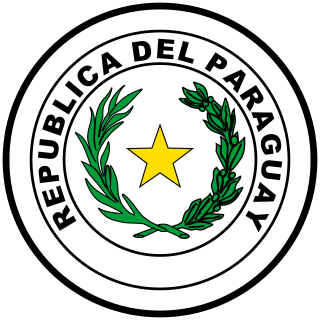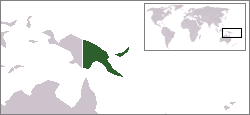Related Research Articles

Human rights in Uganda have trended for the past decades towards increasing harassment of the opposition, cracking down on NGOs which work on election and term limits, corruption, land rights, environmental issues, womens, children and gay rights. In 2012, the Relief Web sponsored Humanitarian Profile – 2012 said Uganda made considerable developments Since at least 2013 the Freedom in the World report by Freedom House has identified Uganda as a country considered to be "Not Free".There are several areas of concern when it comes to human rights in Uganda, and the "Not Free" classification is due to both low political rights and civil liberties rankings.

Bolivia's constitution and laws technically guarantee a wide range of human rights, but in practice these rights very often fail to be respected and enforced. “The result of perpetual rights violations by the Bolivian government against its people,” according to the Foundation for Sustainable Development, “has fueled a palpable sense of desperation and anger throughout the country.”

Technically speaking, Paraguayan law prohibits discrimination on grounds of gender, race, language, disability, or social status, but there is nonetheless widespread discrimination.

Lesbian, gay, bisexual, and transgender (LGBT) people in Papua New Guinea face legal challenges not experienced by non-LGBT residents. Male same-sex sexual activity is illegal, punishable by up to 14 years' imprisonment. The law is rarely enforced, but arrests still do happen, having occurred in 2015 and 2022. There are no legal restrictions against lesbian sex in the country.
The Declaration on the Elimination of Violence Against Women was adopted without a vote by the United Nations General Assembly in the 48/104 resolution of 20 December 1993. Contained within it is the recognition of "the urgent need for the universal application to women of the rights and principles with regard to equality, security, liberty, integrity and dignity of all human beings". It recalls and embodies the same rights and principles as those enshrined in such instruments as the Universal Declaration of Human Rights, and Articles 1 and 2 provide the most widely used definition of violence against women.
Tonga is a constitutional monarchy with a population of approximately 130,000. Politics and the economy are dominated by the king, the nobility, and a few prominent commoners. Economic, social and cultural rights are generally well respected. There are, however, a number of issues concerning protection of civil and political rights, particularly freedom of expression, and rights to political participation. Violence against women is a serious issue.
Capital punishment is no longer a legal punishment in the Independent State of Papua New Guinea.

Human rights in South Sudan are a contentious issue, owing at least in part to the country's violent history.
Samoa, officially the Independent State of Samoa, has a population of approximately 188,000 people. Samoa gained independence from New Zealand in 1962 and has a Westminster model of Parliamentary democracy which incorporates aspects of traditional practices. In 2016, Samoa ratified the Convention on the Rights of Persons with Disabilities CRPD and the three optional protocols to the CRC
Tuvalu is a small island nation in the South Pacific, located North of Fiji and North West of Samoa. The population at the 2012 census was 10,837. Tuvalu has a written constitution which includes a statement of rights influenced by the United Nations Universal Declaration of Human Rights and the European Convention on Human Rights. While most human rights in Tuvalu are respected, areas of concern include women’s rights and freedom of belief, as well as diminishing access to human rights in the face of global warming. The latter has played a major role in the implementation of human rights actions in Tuvalu given its geographical vulnerability and scarce resources.

Fiji is an island nation in Melanesia in the South Pacific Ocean with a population of approximately 849,000. It is made up of Fijians, Indo-Fijians, Europeans, Chinese, other Pacific islanders, and people of mixed racial descent. Fiji has been in a state of political unrest since their independence from Britain in 1970.
Papua New Guinea (PNG) has a population of 6.8 million, nearly half of which is under 18 years of age. Public trust in the justice system has been eroded, and the country’s significant crime problem exacerbated, by brutal responses from police against those they suspect of having committed offences, and the routine violence, abuse and rape carried out by police against persons, including children, within their custody. Many incidents are cases of opportunistic abuses of power by police instead of their following official processes. While a raft of measures have been assembled in order to improve conditions and processes for youths within the justice system, their success has been hampered by a severe lack of implementation, insufficient resources, and failure to impose appropriate penalties on authorities for failure to adhere to their provisions.
The Republic of Uruguay is located in South America, between Argentina, Brazil and the South Atlantic Ocean, with a population of 3,332,972. Uruguay gained independence and sovereignty from Spain in 1828 and has full control over its internal and external affairs. From 1973 to 1985 Uruguay was governed by a civil-military dictatorship which committed numerous human rights abuses.
Human rights in Saint Vincent and the Grenadines are protected by international conventions and domestic legal framework. The country has ratified a number of United Nations conventions regarding human rights and its constitution guarantees some basic human rights, such as the right to fair trial and freedom from torture. However, clauses guaranteeing socio-economic rights, such as the right to education, and guarding against discrimination are "almost non-existent" in the constitution. There are also no individual complaints procedures for some of the ratified conventions.
Examples of Gender inequality Papua New Guinea includes poverty, violence, limited access to education and health care, and witch hunts. Cases of violence against women in PNG are under reported. There is also a lack of services for women who experience violence. There are reports of sexual abuse by police officers, on arrest and whilst in police custody. These incidents lack documentation or investigation, consequently, perpetrators are rarely prosecuted or punished. The government of Papua New Guinea (PNG) has introduced legislation to combat these issues, though with limited success.

Human rights in the Kingdom of Denmark are protected by the state's Constitution of the Realm (Danmarks Riges Grundlov); applying equally in Denmark proper, Greenland and the Faroe Islands, and through the ratification of international human rights treaties. Denmark has held a significant role in the adoption of both the European Convention on Human Rights and in the establishment of the European Court of Human Rights (ECHR). In 1987, the Kingdom Parliament (Folketinget) established a national human rights institution, the Danish Centre of Human Rights, now the Danish Institute for Human Rights.

Portugal is generally considered as successful in upholding the civil liberties and protecting the human rights of its citizens. Portugal has proved to be determined in promoting and respecting human rights at an international and national level. The country's minister of Justice as of September 2018, Francisca Van Dunem, said that Portugal has had "a good track record" on human rights but violations still do persist.
Human rights in Norway protect the fundamental rights of all persons within the Kingdom of Norway. These rights are safeguarded by Chapter E of the Constitution of Norway or Kongeriket Norges Grunnlov, as well as the ratification of various international treaties facilitated by the United Nations. The country maintains a dedicated commitment to human rights and was the second country to ratify the European Convention on Human Rights.
Monica Paulus is a human rights activist from the Highlands of Papua New Guinea. She is a co-founder of the "Highlands Women Human Rights Defenders Network" and of "Stop Sorcery Violence" and concentrates her efforts on protecting women who have been accused of witchcraft or sorcery.
References
- ↑ "The World Factbook". Cia.gov. Retrieved 4 February 2016.
- 1 2 3 4 5 6 7 "Papua New Guinea: Violence against women, surgery-related killings and forced evictions: Amnesty international submission to the UN universal periodic review, May 2011" . Retrieved September 11, 2011.
- ↑ "RATIFICATION OF INTERNATIONAL HUMAN RIGHTS TREATIES: ADDED VALUE FOR THE PACIFIC REGION" (PDF). Pacific.ohchr.org. Retrieved 2016-02-04.
- ↑ "Office of the United Nations High Commissioner for Human Rights". Archived from the original on September 3, 2011. Retrieved September 11, 2011.
- ↑ "UN Special Rapporteur on Torture presents preliminary findings on his Mission to Papua New Guinea". Ohchr.org. Retrieved 2016-02-04.
- 1 2 3 "General Assembly" (PDF). Archived from the original (PDF) on March 20, 2012. Retrieved September 11, 2011.
- 1 2 3 4 5 "2010 Human Rights Report: Papua New Guinea". State.gov. 2011-04-08. Archived from the original on 2011-04-13. Retrieved 2016-02-04.
- ↑ Davidson, Helen (5 July 2013). "Médecins Sans Frontières opens Papua New Guinea clinic for abuse victims". Guardian News and Media Limited. Retrieved 12 February 2013.
- ↑ Davidson, Helen (19 July 2013). "Papua New Guinea: a country suffering spiralling violence". Guardian News and Media Limited. Retrieved 2014-01-17.
- 1 2 Jewkes, Rachel; Emma Fulu; Tim Roselli; Claudia Garcia-Moreno (10 September 2013). "Prevalence of and factors associated with non-partner rape perpetration: findings from the UN Multi-country Cross-sectional Study on Men and Violence in Asia and the Pacific". The Lancet . 323 (4): e208–e218. doi: 10.1016/S2214-109X(13)70069-X . PMID 25104346.
- ↑ "Where Violence Against Women is Rampant | Human Rights Watch". Hrw.org. 27 January 2009. Retrieved 2016-02-04.
- 1 2 "The gruesome fate of "witches" in Papua New Guinea". economist.com. 13 July 2017. Retrieved 23 July 2017.
- ↑ "Woman Burnt For 'Sorcery' – Mission & Justice". Missionandjustice.org. Retrieved 2016-02-04.
- ↑ "UNICEF strives to help Papua New Guinea break cycle of violence". UNICEF. 18 August 2008. Archived from the original on 14 June 2018. Retrieved 26 February 2014.
- ↑ Wiseman H (August 2013). "Stop Violence Against Women and Children in Papua New Guinea" (PDF). ChildFund. p. 5. Archived from the original (PDF) on 2015-08-27. Retrieved 18 May 2015.
- ↑ "The World Factbook". Cia.gov. Retrieved 2016-02-04.
- ↑ CITP
- ↑ "Tribal violence in Papua New Guinea". Red Cross. 15 March 2022. Retrieved 3 October 2023.
- 1 2 "Environment (Amendment) Bill 2010" (PDF). Actnowpng.org. Retrieved 2016-02-04.
- ↑ [ dead link ]9
- ↑ Catalinotto, John (2009-06-06). "Papua New Guinea's Indigenous people v. Barrick Gold". Workers.org. Retrieved 2016-02-04.
- ↑ "Individual Country Ratings and Status, 1973-2015 (FINAL)". Freedom House. Retrieved 20 January 2016.